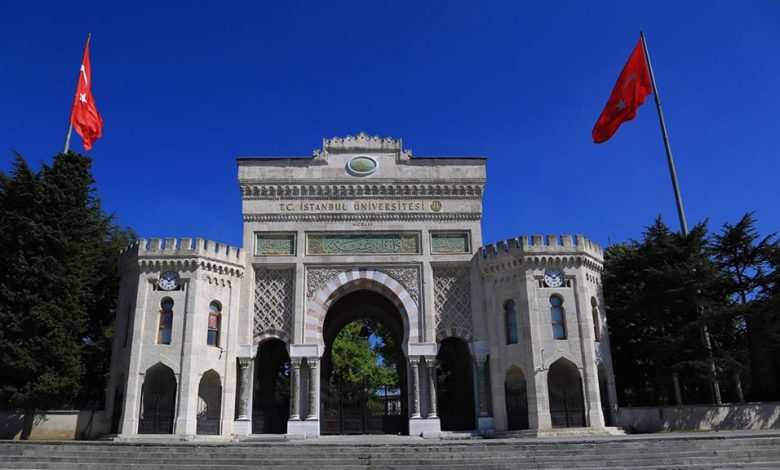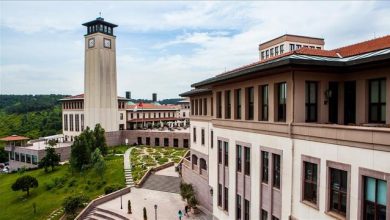Studying in Turkey 2025

Studying in Turkey 2025
Turkey, as a migration destination for many people from different countries, including Iran, holds a special place for students who want to study in Turkey in 2024 due to its superior quality of education and effective relations with Europe. The official language of this country is Turkish, and it is possible for students to study in both Turkish and English. These facilities have turned the academic path into an exciting and vibrant experience, taking students to a new world of higher education.
In this regard, individuals can learn the Turkish or English language based on the conditions of their desired university. A large number of international students are active in state and private universities in Turkey, and due to the affordability of state universities, there has been a greater attraction of Iranian students. These facilities and motivations portray Turkey as a desirable destination for advancing education and a new academic culture.
According to global rankings, Turkish universities are among the top 50 universities in the world, which indicates outstanding performance in providing access to quality education. In Turkey, there are over 200 universities operating, which indicates the abundance of various educational options. It can be claimed that at least one university is available in every city in Turkey.
Among the advantages of studying in Turkey, the following are of particular importance:
1- Due to the cultural proximity and also the shared historical background between Iran and Turkey, Iranian immigrants in this land often feel less homesick. This close connection and sharing of historical heritage provides greater opportunities for Iranian immigrants to integrate into the process of adapting to Turkish society.
2- The widespread hospitality culture among the Turkish people makes living alongside them a pleasant and enriching experience. This hospitality is said to be one of the rich and valuable cultural characteristics of Turkey that has a significant impact on creating warm connections and a friendly environment with the people of this country. Therefore, living alongside the Turkish people is not only a cultural experience but also a journey into a world full of values and connection with others.
3- In terms of climate, Turkey has achieved a very favorable status, and for this reason, it has become more attractive compared to countries such as Russia and Canada. This diverse and pleasant climate plays a fundamental role in increasing Turkey’s popularity as a migration and tourism destination.
4- Quality and standard education: Turkey proudly boasts top-ranked universities with a strong history in the field of education and training. These universities provide students with a unique opportunity to acquire quality and up-to-date education, including providing the latest knowledge and scientific content to their students.
5- The university degrees of this country, confirmed by the Ministry of Science of the Islamic Republic of Iran, provide the necessary credibility and trust to Iranian students.
6- Turkish cities, especially Istanbul and Ankara, are part of a captivating urban experience with a rich and diverse culture, as well as abundant recreational opportunities. These cities, with their energetic nightlife, artistic and cultural activities, vibrant markets, and numerous historical sites, offer the newest urban experiences to their residents and visitors.
7- Suitable study costs: In 2024, the cost of studying in Turkey has become very affordable as an educational destination, making it very attractive. Many study programs, including those that attract foreign students, are offered at reasonable costs. From a financial perspective, the cost of studying and living in Turkey is much more affordable compared to Iran.
8- In Turkey, it is possible to study at universities without needing to participate in the national university entrance exam.
9- Excellent opportunities for participating in exchange programs: While Turkish students benefit from exchange programs with universities worldwide, they have the opportunity to improve their education in other countries and become familiar with diverse cultures and experiences.
10- Transportation, accommodation, and daily needs costs for international students have been significantly reduced due to the discounts and special facilities provided by Turkish universities for international students, making the costs very affordable for them.
11- After graduation, it is possible for students to look for job opportunities in Turkey and expand their work experience in this country, especially for those studying dentistry in Turkey. A post-graduation work visa allows the student to easily enter the Turkish job market and work in a profession related to their field of study.
12- English language: Many study programs in Turkey are offered in English, which is an advantage and provides more opportunities for successful participation in their educational experience for students who have English language skills as a second language.
Note: An important point regarding the cost of studying in Turkey is that if state universities are chosen, a lower tuition fee will be charged compared to private universities. For example, for those studying at a state university at the Master’s level, the cost is approximately between 300 and 600 USD, while if a private university is chosen, this cost may reach around 20,000 USD.
Regarding the types of schools in Turkey, it can be emphasized that these schools are divided into three categories: private, state, and international. Individuals who intend to obtain permanent residency in Turkey can consider state and private school options. However, individuals who use Turkey as a starting point for migration to other countries can benefit from international schools as a better option for their children’s education. One of the basic conditions for studying in Turkish schools is that one of the student’s parents must have a valid residence permit and their child must be under 18 years old. To enroll in primary schools, applicants must go to the nearest school to their place of residence with their residence card and obtain a letter from the municipality with their address. Finally, if they wish to enroll in private schools in Turkey, they must pay the determined tuition fee and finalize their registration steps.
To continue education in Turkish schools, it is mandatory for foreign students to provide translated copies of their latest academic records and passport. Students who are in Master’s and PhD programs can work in this country while studying after completing their first year of study. Also, if they have residency in Turkey, it is possible to benefit from conditions for free education, and individuals can take advantage of this opportunity. Turkey hosts a large number of international students annually who have decided to study in this country. These individuals have the ability to study in various fields and academic levels at Turkish universities and schools. One of the advantages offered by Turkey is the allocation of scholarships to individuals who meet the conditions for free education in this country. These scholarships can cover all or part of the costs of studying in Turkey in 2024 for the student.
Studying in Turkey in 2024 includes 4 years of primary education, 4 years of middle school, and 4 years of high school. All immigrants who intend to enter this country for the purpose of education must go through these educational stages. After spending 12 years in school and college, they enter university and study at the Bachelor’s level. The Bachelor’s degree program in Turkey lasts for 4 years, the Master’s program for 2 years, and the PhD program for a maximum of 4 years. In the PhD program, students again go through courses and exams to qualify for defending their doctoral thesis. In the Turkish education system, similar to Iran, the academic year starts in the autumn season, and courses are offered on a semester basis in the summer, autumn, and spring seasons. One of the common features is the need to have a high school diploma to enter Turkish universities. Other advantages include free health insurance services and a 50% discount on transportation costs and the use of the Turkish Istanbul Card, which is provided to international students in this country.
Note: The official language of Turkey is Turkish, but in the field of education at universities and schools in this country, the language of instruction may change depending on the type of institution and the field of study. In the Turkish education system, the main languages include Turkish, German, French, and English. However, with the aim of facilitating international communication and creating a suitable learning environment for non-Turkish speaking students, free Turkish language courses are offered. This action is intended to increase cultural and social interactions in the university community and improve students’ understanding of course content and Turkish culture.
Proof of financial means is considered an essential requirement for educational migration to Turkey. This certificate indicates the student’s ability to cover living expenses in the destination country. This certificate must be submitted to the embassy or relevant organization and guarantee that the student is capable of covering their living costs in the future. The amount of financial capability usually varies based on the university, school, and field of study of the individuals.
This action is taken to ensure the student’s financial support during their study period. Information and statements related to financial capability are submitted to the embassy or relevant organizations to ensure the student’s financial capability in Turkey.
Some students prefer to have their accommodation less than an hour away from the university. For this group of students, better accommodation options are in houses or apartments. This category of students prefers to live in their own quiet and private environment. Conversely, some other students find challenges such as commuting to the university, waking up early, managing bills, and communicating with landlords difficult. Therefore, for this group of students, choosing a student dormitory as a more suitable place of accommodation seems preferable. In all student dormitories in Turkey, rooms are arranged based on gender segregation, and the number of students in each room varies. The cost of accommodation in these rooms varies depending on the number of residents, so that with an increase or decrease in the number of residents, the cost also changes. One of the advantages of dormitories is that all necessary facilities for students are provided to them. Turkish dormitories have internet access and sometimes even have a special cafe with a self-service cafeteria where students can consume their meals. Common facilities such as a TV room, study room, and kitchen are also among the facilities of dormitories.
Note: Education in Turkey in 2024 is not free and requires international students to pay tuition fees. However, studying at state universities in Turkey is much more affordable compared to similar institutions in Europe or the United States. For example, the tuition fee for international students at state universities for the Bachelor’s level varies between 250 and 1800 USD per year. The tuition fee for Master’s level is also between 300 and 900 USD annually, and for PhD level, it is between 500 and 800 USD annually.
Private universities charge students more tuition fees than state universities, and the annual cost for these universities in 2024 is as follows:
• Average cost of Bachelor’s degree in English: 1500 to 4500 USD annually
• Average cost of Bachelor’s degree in Turkish: 1000 to 2000 USD annually
• Average cost of Master’s degree in English: 2000 to 3000 USD annually
• Average cost of Master’s degree in Turkish: 1500 to 2000 USD annually
All academic levels in Turkey are available in both Turkish and English. Those who intend to study in Turkey should note that some more expensive fields such as medicine or engineering may have higher costs. International students studying at the Bachelor’s level can apply for a work permit after the first year. This permit allows them to work part-time for a maximum of 30 to 35 hours per week, and the part-time wage is usually set at 50 Turkish Lira per hour.







